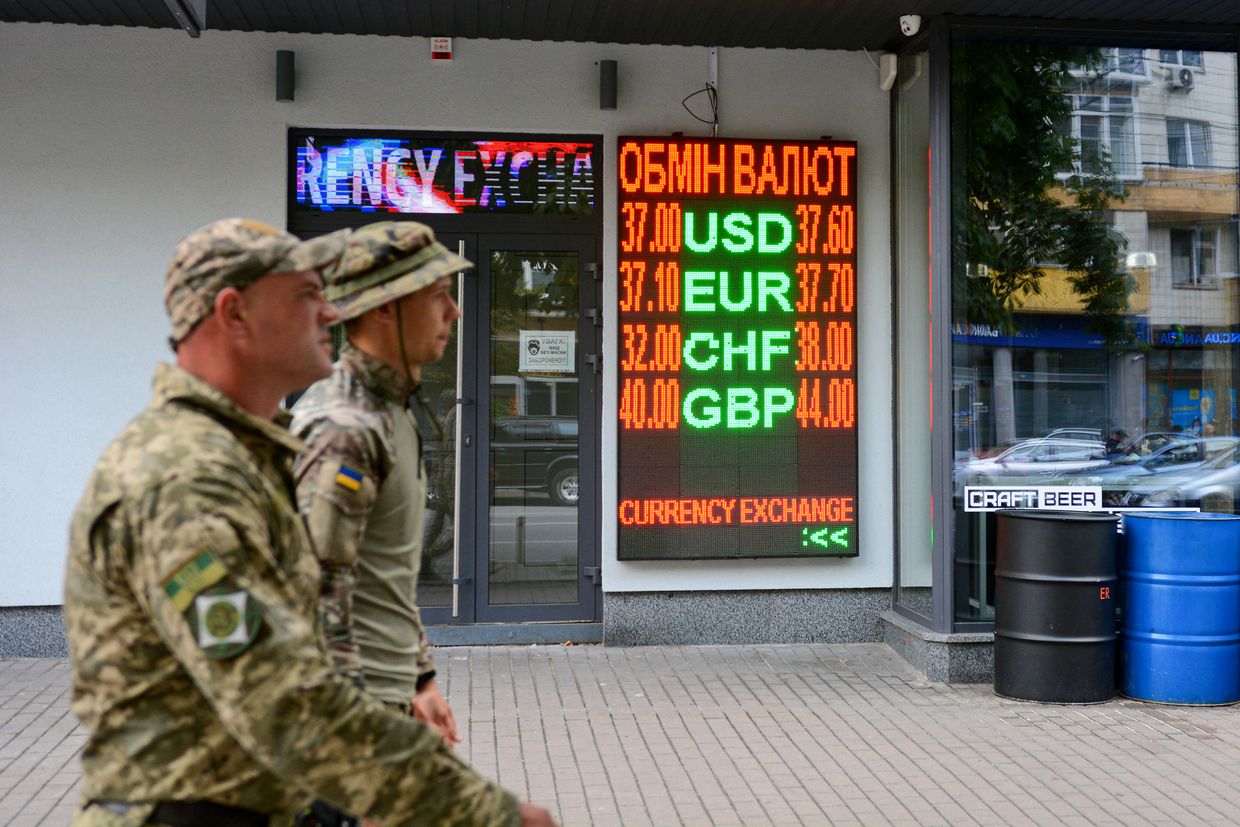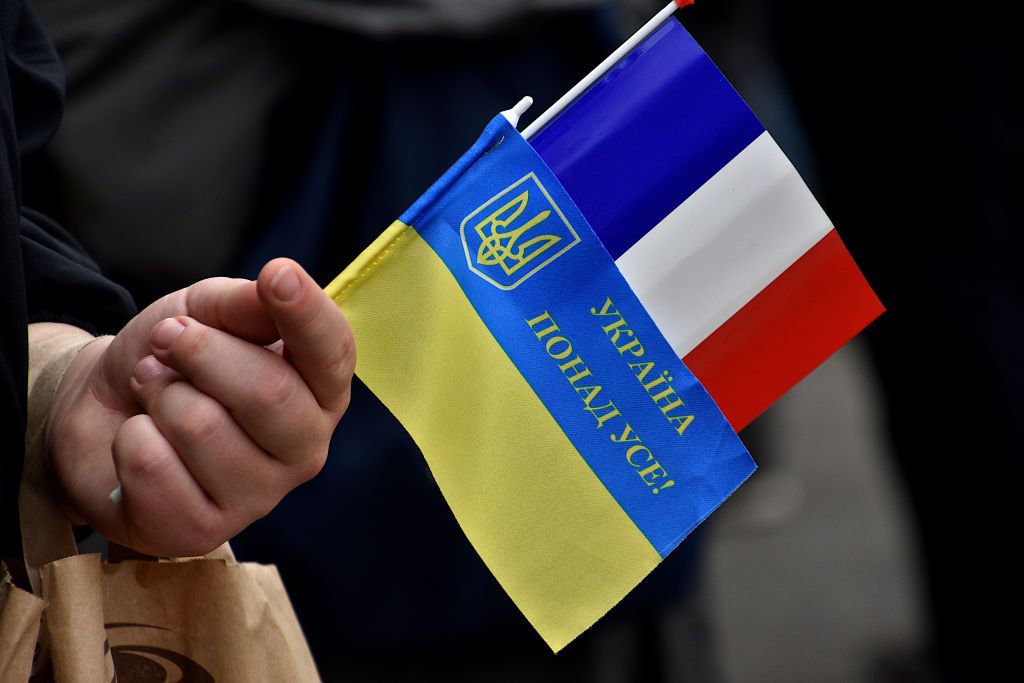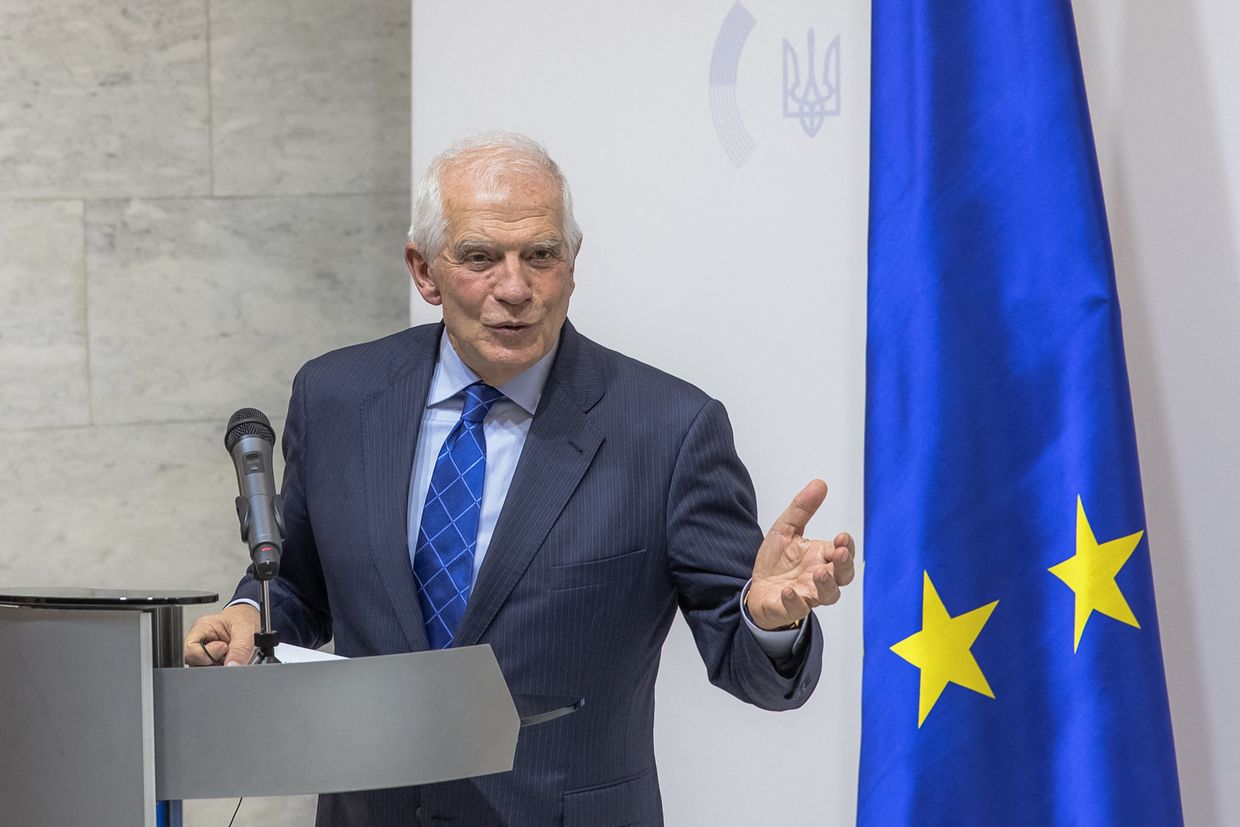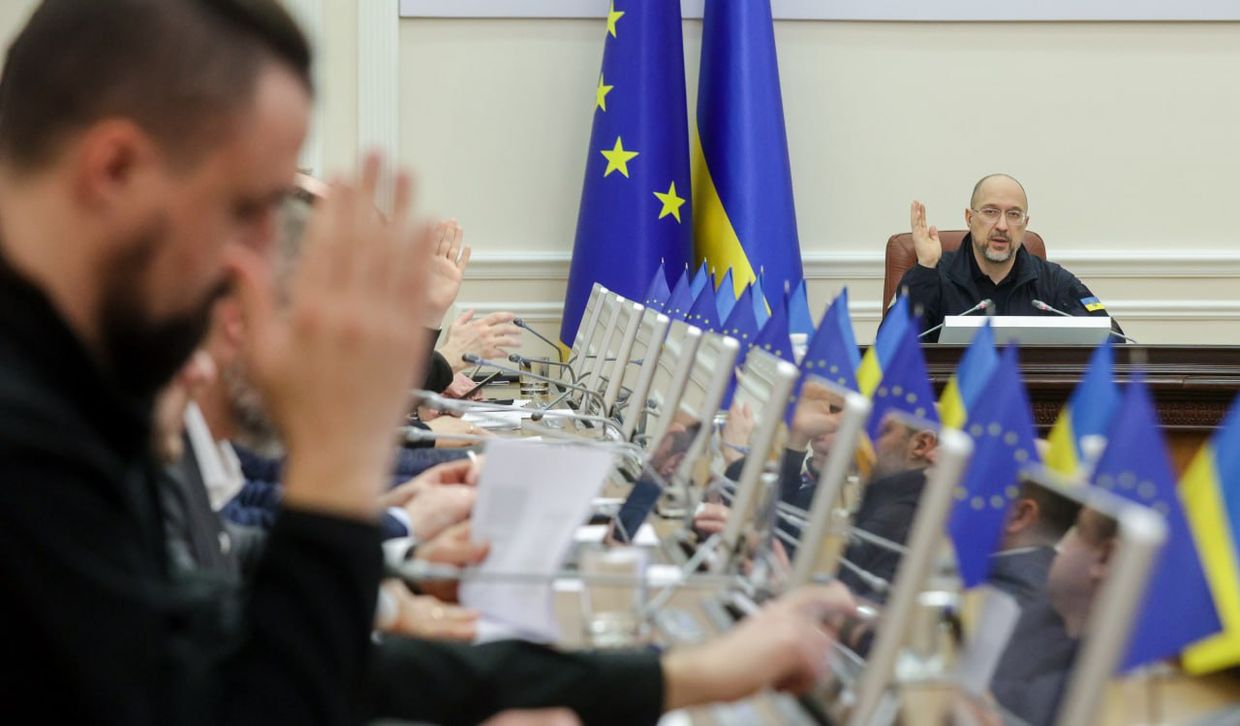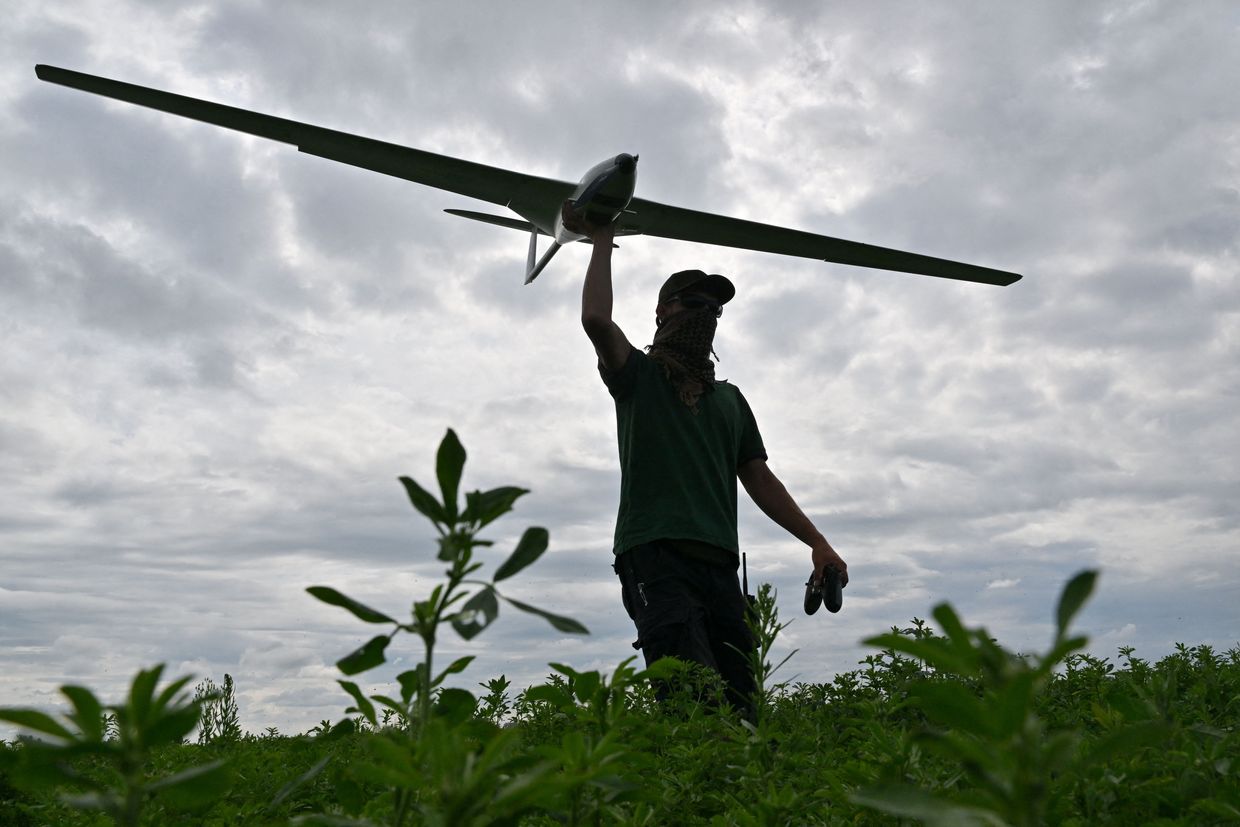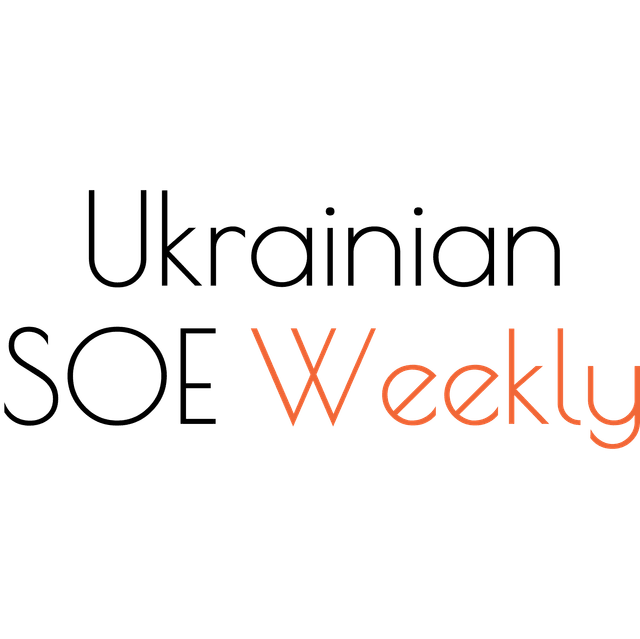Ukraine state-owned enterprises weekly — Issue 123

Editor’s Note: This is issue 123 of Ukrainian State-Owned Enterprises Weekly, covering events from March 9-15, 2024. The Kyiv Independent is reposting it with permission.
Corporate governance of SOEs
Ukreximbank looks for a new CEO. The competitive selection was announced on March 11. The submission deadline is April 1.
Executive search company Odgers Berndtson will review the applications and interview the candidates by April 22. This will result in a list of up to five candidates.
The supervisory board’s nomination and remuneration committee, together with the head-hunters, will then interview the remaining candidates and shortlist up to two people. Final interviews with the supervisory board will run from April 30-May 6, the bank said.
The bank’s current CEO is Serhiy Iermakov, who had been an acting CEO from October 2021 to March 2022, when he was promoted to full-fledged chief executive.
As we wrote in Issue 46, on Oct. 4, 2021, journalists of the investigative TV program Skhemy were attacked in Ukreximbank while filming an interview with then CEO Yevhen Metzger in his office.
On Oct. 6, 2021, Metzger announced that he was temporarily stepping down and apologized to the journalists. At its extraordinary meeting, the supervisory board decided to remove him from office for the time of the investigation. Serhiy Iermakov was appointed as an acting CEO.
As we wrote in Issue 47, on Oct. 11, 2021, during an extraordinary meeting of Ukreximbank supervisory board’s nomination committee, the board received Metzger’s resignation letter.
The board appointed Serhiy Iermakov as the bank’s acting CEO starting Oct. 12, 2021 until a new CEO was appointed. A new CEO had to be selected and appointed no later than April 12, 2022.
However, on March 14, 2022, after the outbreak of Russia’s full-scale war, the bank’s supervisory board decided to approve Iermakov, one of the three shortlisted candidates, as the CEO until the end of martial law in Ukraine. The supervisory board committed to launch a new competitive selection after martial law is lifted. On March 31, 2022, the National Bank of Ukraine (NBU) approved Iermakov’s appointment.
For an extended overview of the Ukreximbank incident and its analysis from a corporate governance perspective, see SOE Weekly’s Issues 46 and 47.
Viktoriya Strakhova, a member of Ukreximbank’s supervisory board, explained that Iermakov would continue to work as the CEO until a new CEO is appointed. “The supervisory board is fully satisfied with working with Iermakov, but there are life circumstances that do not depend on people’s will,” she said.
Energy sector
Naftogaz Group pays over Hr 5 billion in taxes for February. On March 15, Naftogaz Group reported that it paid Hr 5.3 billion ($135.4 million) for February 2024, including Hr 4.8 billion ($122.6) to the state budget and Hr 500 million ($12.8 million) to local budgets. This is 17.8% more than it contributed in February 2023.
The group has paid a total of Hr 11.4 billion ($291.1 million) in taxes since the beginning of 2024, Naftogaz added. As we wrote in Issue 119, Naftogaz Group paid Hr 6.1 billion ($155.8 million) into state and local budgets for January 2024.
As we reported in Issue 115, Naftogaz Group paid Hr 83.4 billion ($2.1 billion) in taxes to the state budget and another Hr 6.8 billion ($173.7 million) to local budgets in 2023.
Foreign traders transport over 60 million cubic meters of gas to Ukraine in January-February 2024. On March 14, the Gas Transmission System Operator of Ukraine (GTSOU) reported that over 60 million cubic meters of gas were delivered to Ukraine in January-February 2024, mostly in the short-haul mode.
Traders are also booking neighboring states’ pipelines to transport gas into Ukraine, GTSOU added.
As we reported in Issue 120, European traders earned about $320 million due to using Ukraine’s underground storage facilities.
According to Naftogaz, foreign traders and energy companies stored 2.5 billion cubic meters of gas in Ukraine in 2023. Naftogaz aims to increase this to 4 billion cubic meters in 2024.
Naftogaz said that Ukraine offered foreign customers up to 10 billion cubic meters of storage capacity this year, which is a third of Ukraine’s total underground storage capacity.
On Feb. 21, Naftogaz also reported that the gas storage operator Ukrtransgaz, a Naftogaz subsidiary, and GTSOU, would run stress tests to confirm the reliability of the country’s gas transportation system and underground storage amid shelling and the potential cessation of Russian gas transit. The results of this review would be disclosed at the end of April 2024. See Issue 120 for more detail.
As we wrote in Issue 83, Ukrtransgaz completed its certification under new EU gas storage regulations in April 2023. See Issue 83 for more detail.
Other sectors
UMCC starts supplying raw materials to Italy, Spain, and Germany. In Q4 2023 and Q1 2024, the United Mining and Chemical Company (UMCC) signed contracts to deliver 80,000 metric tons of minerals to EU companies, UMCC’s press service reported on March 15.
UMCC plans to deliver 200,000 metric tons in 2024.
According to UMCC’s first deputy CEO Yegor Perelygin, the company works with well-known end users in Italy, Spain, and Germany. The company’s rutile and zircon may become a mainstay in the raw material portfolios of major processors in these countries, he added.
At the same time, companies in the U.S. and the Czech Republic remain strategic partners for UMCC's ilmenite concentrate, Perelygin said. The company also plans to export 60,000 metric tons of ilmenite from its Irshansk Mining and Processing Plant to one of the largest end users in North America.
As we wrote in October 2023 Issue 106, UMCC started shipping ilmenite concentrate from its branch, Irshansk Mining and Processing Plant, to the Czech Republic.
As we wrote in Issue 33 more than two years ago, the UMCC privatization auction was scheduled to take place on Aug. 31, 2021. Later, in SOE Weekly Issue 41, we reported that the State Property Fund of Ukraine (SPFU) cancelled that privatization auction, which had only one qualified bidder.
The media then published a list of participants allegedly interested in UMCC assets. Some of them said that the asset was not well prepared for privatization, and they did not consider the auction terms fair. Others claimed that the starting price was inadequate. It was reportedly impossible to estimate the company’s mineral deposits.
The SPFU’s Auction Commission set Oct. 29, 2021 as the new auction date, but that auction was also canceled (see Issue 49 for detail). So was the following auction on Dec. 20, 2021 (see Issue 57 for detail).
In Issue 105, we reported that the SPFU changed UMCC’s executive board, dismissing first deputy CEO Yaroslava Maksymenko and replacing her with Yegor Perelygin.
As we reported in Issue 106, the SPFU planned for UMCC to be one of the first large companies to be privatized. The starting price would be determined with BDO Corporate Finance, the SPFU’s advisor on the privatization of UMCC.
However, as we wrote in Issue 109, then acting head of the SPFU Oleksandr Fedoryshyn said later in October that the SPFU was going to offer investors to buy UMCC in a single package with Demurinsky Mining and Processing Plant.
Vitaliy Koval, the newly appointed head of the SPFU, confirmed this later in an interview (see our Issue 117).
In effect, this suggested that the SPFU’s previously announced plans to privatize UMCC as one of the first targets would be seriously delayed, if not put aside.
See more on the previous attempts to sell UMCC in our Issues 33, 41, 49, 56, and 57.
In SOE Weekly Issue 74, we reported that on Feb. 3, 2023, HACC satisfied an appeal by the Justice Ministry and confiscated the Demurinsky Mining and Processing Plant formerly owned by sanctioned Russian oligarch Mikhail Shelkov.
In Issue 77, we reported that the Cabinet of Ministers transferred Shelkov’s assets to the SPFU, including Investagro and Demurinsky.
Confiscation of the Russian assets, nationalization, and asset seizure
Ukrnafta can manage the seized Glusco petrol station chain. On March 14, the Antimonopoly Committee of Ukraine (AMCU) allowed Ukrnafta to take over the management of Glusco’s assets.
With the AMCU’s approval, Ukrnafta has every legal ground to sign the asset transfer deeds with the Asset Recovery and Management Agency (ARMA). Then it can start managing the Glusco chain, Ukrnafta’s CEO Sergii Koretskyi wrote on his Facebook page.
Ukrnafta will manage the seized corporate rights of 34 companies and their real estate, like petrol stations, land plots, and other assets, he added.
The Glusco chain, which includes 81 petrol stations, oil depots, and other property, was formed from Rosneft’s retail business, which international trader Proton Energy Group S.A. bought through its sister company Glusco Energy S.A. in 2016.
Until the end of 2021, the network was owned by Israeli businessman Nisan Moiseev. He is an associate of Ukrainian politician Viktor Medvedchuk, who was charged with treason but given to Russia in a prisoner exchange. Moiseev said that he was Medvedchuk’s friend, but the two had no business relations.
In May 2022, the Cabinet gave Naftogaz Oil Trading 170 Glusco filling stations to manage. They started to operate under the U.GO brand.
As we reported in SOE Weekly’s Issue 99, on July 25, 2023, ARMA said that it suspected that Naftogaz Oil Trading, which operated the seized Glusco chain, did not submit or properly document information on its activities.
On Aug. 3, 2023, ARMA unilaterally terminated its petrol station management agreement with Naftogaz Oil Trading, alleging that the manager systematically provided false information about revenues from petrol pumps and oil depots. ARMA’s chief Olena Duma said the state budget only got Hr 1.5 million ($38,000) in revenue in over a year.
Naftogaz disagreed with this conclusion and said the management change was illegal. The company said that it reported the management results to ARMA every month and received no complaints about data inaccuracy. The company said that it planned to continue managing the network.
Later, Naftogaz CEO Oleksiy Chernyshov sent a letter to Prime Minister Denys Shmyhal, stating that Hr 280 million ($7.2 million) had been spent to restore the operation of these assets, and the management agreement for the filling stations should not be terminated until these costs are compensated.
On Aug. 8, 2023, ARMA reported that the Energy Ministry supported its proposal to transfer the Glusco network to the management of Ukrnafta under a special procedure.
As we reported in Issue 100, Chernyshov told Ekonomichna Pravda (EP) that Naftogaz is not in the business of managing petrol stations – the company was ready to give back the assets but needed its investments back.
As we wrote in Issue 102, in September 2023, the Cabinet of Ministers decided to place the chain under Ukrnafta’s management. ARMA then explained that under the management agreement, Ukrnafta must pay at least Hr 5 million ($128,000) per month into the state budget, regardless of financial results.
Ukrnafta also must pay 85% of its profits from managing Glusco’s assets into the state treasury, ARMA then stated.
On Jan. 9, ARMA accused Ukrnafta of failing to comply with the conditions and initiated the cancellation of the Cabinet’s decision.
Later, as we reported in Issue 117, ARMA agreed to let Ukrnafta manage Glusco after Ukrnafta paid Hr 21 million ($536,000) to the state budget as a guaranteed payment under the management agreement.
Following this, ARMA withdrew its January initiative that asked the Cabinet of Ministers to terminate the Glusco management agreement with Ukrnafta. ARMA and Ukrnafta then also signed a joint merger filing with the Anti-Monopoly Committee of Ukraine (AMCU).
Ukrainian SOE Weekly is an independent weekly digest based on a compilation of the most important news related to state-owned enterprises (SOEs) and state-owned banks in Ukraine. The contents of this publication are the sole responsibility of the editorial team of the Ukrainian SOE Weekly. The SOE Weekly is produced and financed by Andriy Boytsun. Communications support is provided and financed by CFC Big Ideas. The SOE Weekly is not financed or influenced by any external party. Editorial team: Andriy Boytsun, Oleksiy Pavlysh, Dmytro Yablonovskyi, Oleksandr Lysenko, and Mariia Kramar.


